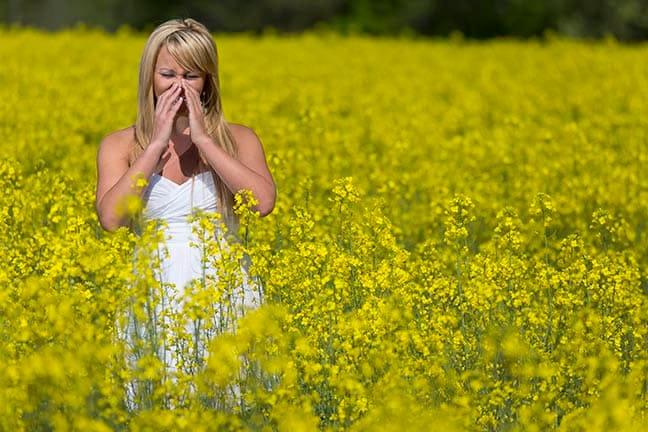
Causes And Symptoms Of Seasonal Allergies
With the season changing, allergies are ready to attack with their full might. You may need to go to an allergy clinic if the symptoms are severe, but by knowing the causes and symptoms of seasonal allergies you may be able to avoid, stop or relieve your allergies.
Causes Or Triggers Of Seasonal Allergies
Here are some of the main triggers of allergies, which occur seasonally.
Pollen In Spring
Pollen is derived from flowers. In spring, flowers are blooming and it increases production of pollen. Pollen is a huge allergy trigger, which can be transported via water, wind or moisture. It goes into the nose and airways of a person and can cause difficulty in breathing, wheezing, sneezing and skin infections if it comes in contact with the skin. For people who are allergic to pollen during spring, are advised to wear masks, whenever they go outside and after coming back home, they should immediately change out of their clothes and shower, since pollen has a tendency to stick to the skin or clothes and can easily transfer itself to other places.
Hay In Summer
Hay fever is very common in the hot months of summer. Hay cutting season is in full swing during the summer months, so people can get allergic to it. Hay fever causes difficulty in breathing and fever, along with skin infections and red bumps on the skin. The reaction varies from person to person.
Ragweed In Winter
Ragweed produces a very allergic pollen, which can cause severe allergic reactions. In winter, ragweed allergies are very common. They can go into your body through your eyes, nose or mouth, and since pollen is virtually invisible and very less noticeable, it is almost impossible to avoid it. The same precautions can be taken for ragweed pollen as for spring pollen. Make sure that you are wearing a mask at all times, if you are going out. Close your windows if the wind speed is too much, because wind is the ideal carrier of pollen. Ragweed pollen can also cause an irritating feeling in the eyes and redness on the skin, leading to the formation of red bumps, which can be infectious.
Mold And Mites
Dust mites and mold can also cause allergies. Dust mites can cause severe sneezing and breathing problems and people who have dust allergies cannot go near a dusty place. Molds and fungal infections are caused due to moisture. Molds and fungi can form on wood or other surfaces which are exposed to moisture. It is mostly common in winter time and in places where there is a lot of snow. Molds and fungi can cause skin infections on contact and in some cases, it can lead to bumpy and red skin, along with fever.
Symptoms Of Seasonal Allergies
Some of the common symptoms of allergies are as follows:
- Sinus problems are very common in people who have dust allergies. It can cause severe sinus infections, which are very bad during the morning hours, as soon as you wake up.
- Sore throat is also a very common symptom, which is associated with fever and breathing allergies. People tend to feel as though their throats are being pricked with needles. This can also be caused by pollen or dust.
- Shortness of breath is associated with respiratory allergies like dust allergies, pollen allergies and ragweed allergies. People will feel like they are running out of breath and will also find it difficult to catch their breath.
- Nasal discharge and runny nose is also very common for a lot of people. It can be caused by pollen, ragweed, hay, dust, mites, insect bites, etc. Along with a runny nose, it can also become blocked or stuffy, which can also lead to difficulty in breathing through the nose.
- Ringing and blocked ears is associated with hay fever and pollen allergies. Ringing of the ears is also very intense in the morning with your sinus infections.
- Headaches can be common in hay fever and pollen allergies.
Seasonal allergies can be very hard to deal with and they can cause a lot of discomfort to the affected person as well. So, knowing the causes which induce allergies and their underlying symptoms, you can try to alleviate the allergy right away. However, it’s better to follow the advice of an allergy specialist Manassas for correct treatment.
Categories: Health & Fitness